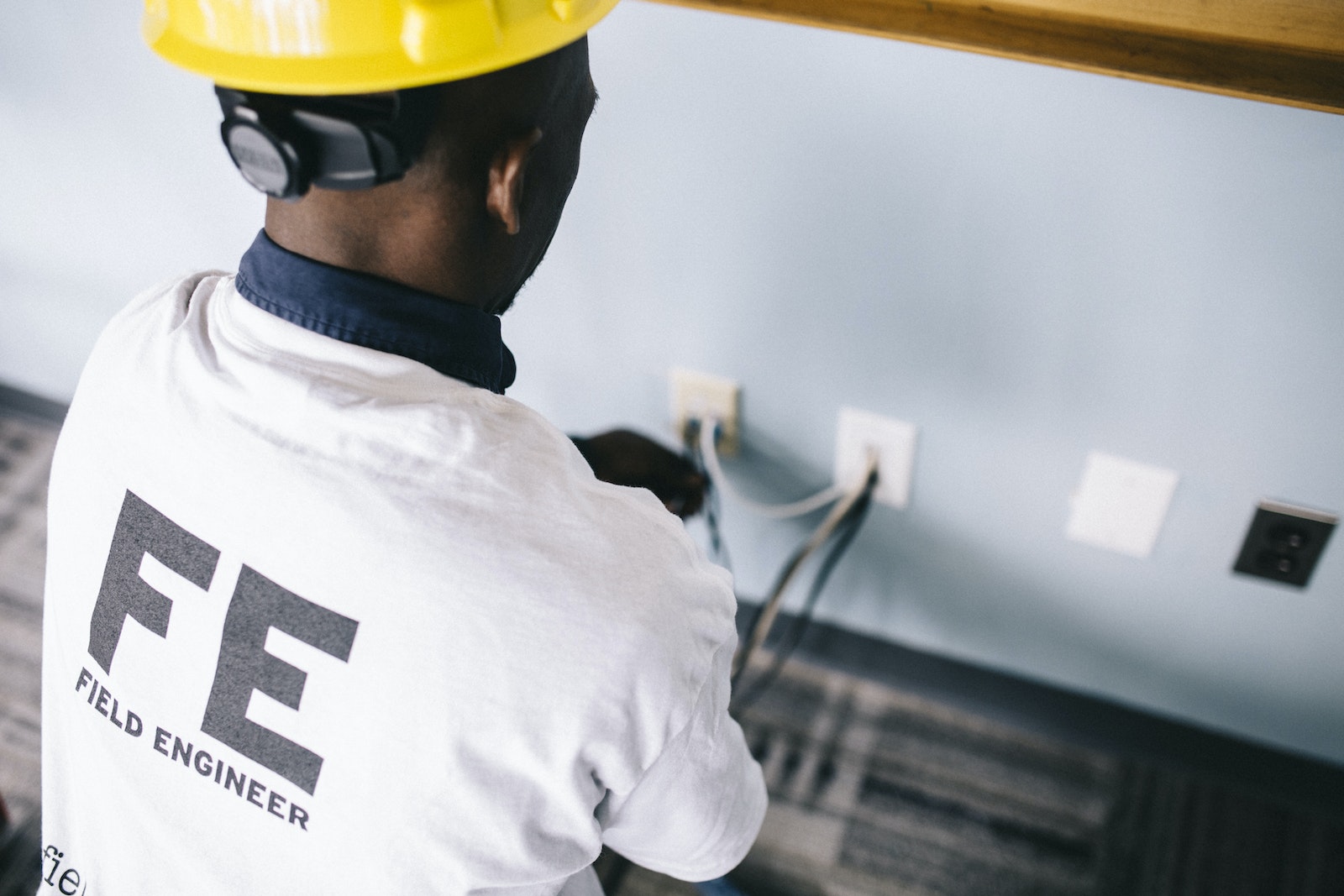Pondering whether to engage an electrician for your smoke detector installation? You’re not the only one! Smoke detectors play a pivotal role in home safety, and their installation needs to be impeccable for maximum efficiency. This article will guide you through the installation procedure, the advantages of DIY installation, and why you might want to consider professional help.
Smoke Detectors Demystified
Before plunging into the intricacies of installation, understanding the mechanics of smoke detectors is paramount. Their primary purpose is to sense smoke and fire, thereby giving you an early warning of potential dangers. Two distinct varieties of smoke detectors exist: ionization and photoelectric. While ionization smoke detectors excel at identifying blazing fires, photoelectric smoke detectors are superior at spotting smoldering fires.
Proper placement and installation are key to the functionality of smoke detectors. Appropriate setup could make the difference between timely detection and catastrophe.
Smoke Detectors: Understanding Their Types and Roles
Smoke detectors come in two types, each with a unique way of detecting smoke and fire.
- Ionization Smoke Detectors: These detectors use a minute amount of radioactive material to ionize the air. The presence of smoke in the chamber disrupts this process, triggering the alarm.
- Photoelectric Smoke Detectors: These utilize a light beam to detect smoke. When smoke infiltrates the chamber, it disperses the light and sets off the alarm.
Ionization vs. Photoelectric: The Functional Difference
While ionization detectors are particularly good at detecting rapid-burning fires, photoelectric detectors are more efficient at spotting slow-burning fires. For comprehensive coverage, installing both types in your home is advisable.
Navigating the Installation Procedure
After acquainting yourself with the different smoke detector types, let’s shift our focus to the installation procedure. You can either install smoke detectors yourself or hire a professional electrician for the task.
Step-By-Step Guide to Smoke Detector Installation
Here’s a simplified guide on installing smoke detectors:
- Select the appropriate type of smoke detector for your home.
- Identify the optimal location for the detector. Ideally, there should be a detector on each level of your home, near bedrooms, and in communal areas.
- Utilize a stud finder to find the ceiling joists for the detector’s mounting.
- Mark the drill holes for mounting using a pencil.
- Drill the holes and insert the screws.
- Fasten the mounting bracket to the ceiling.
- Connect the detector’s wires to your ceiling’s wires.
- Secure the detector to the mounting bracket.
Pro Tips for Optimal Smoke Detector Placement
Here are some expert tips for the ideal placement of smoke detectors:
- Mount detectors on the ceiling, a minimum of 4 inches from the walls.
- Avoid placing detectors near windows, doors, or air vents.
- Install detectors in all bedrooms, outside sleeping zones, and on every floor of your home.
The Case for Hiring an Electrician
Smoke detectors are vital for home safety. However, their installation demands a certain level of technical prowess. Here’s why considering an electrician for the installation might be a good idea.
Electricians come with a wealth of training and knowledge, assuring a safe and correct installation. They can guarantee optimal placement, adherence to local building codes, and provide warranty protection for their craftsmanship.
Benefits of Hiring an Electrician for Smoke Detector Installation
Here are the top reasons why you should consider hiring an electrician for smoke detector installation:
- Electrical Expertise: Electricians possess the required knowledge to ensure the accurate and safe installation of your smoke detector.
- Compliance with Building Codes: An electrician can ensure that your smoke detector meets local building code requirements.
- Mitigated Fire Risks: An appropriately installed smoke detector helps lower fire risks.
- Warranty Protection: A warranty on the electrician’s workmanship provides extra coverage in case of installation-related issues.
DIY Installation: Things to Consider
DIY smoke detector installation is a feasible option, but it comes with a few critical considerations. Firstly, you need a basic understanding of electrical wiring and safety measures. Additionally, you must be familiar with your local building codes to ensure compliance. Lastly, always refer to the manufacturer’s instructions for correct installation.
When is DIY Installation of Smoke Detectors Suitable?
While it’s generally advised to hire an electrician, there could be situations where DIY installation might be more appropriate. If you’re confident in your understanding of electrical wiring, or if budget constraints are a concern, you may opt for DIY installation.
However, prioritize safety above all else, and remember that hiring an electrician is the most reliable and safest option.
In Conclusion
In a nutshell, smoke detectors are indispensable for every home, and their installation warrants serious consideration. While DIY installation is feasible, procuring the services of an electrician ensures correct placement, code compliance, and warranty protection. The final choice between DIY installation and professional help hinges on your electrical knowledge, budget, and the emphasis you place on safety and regulatory compliance.


